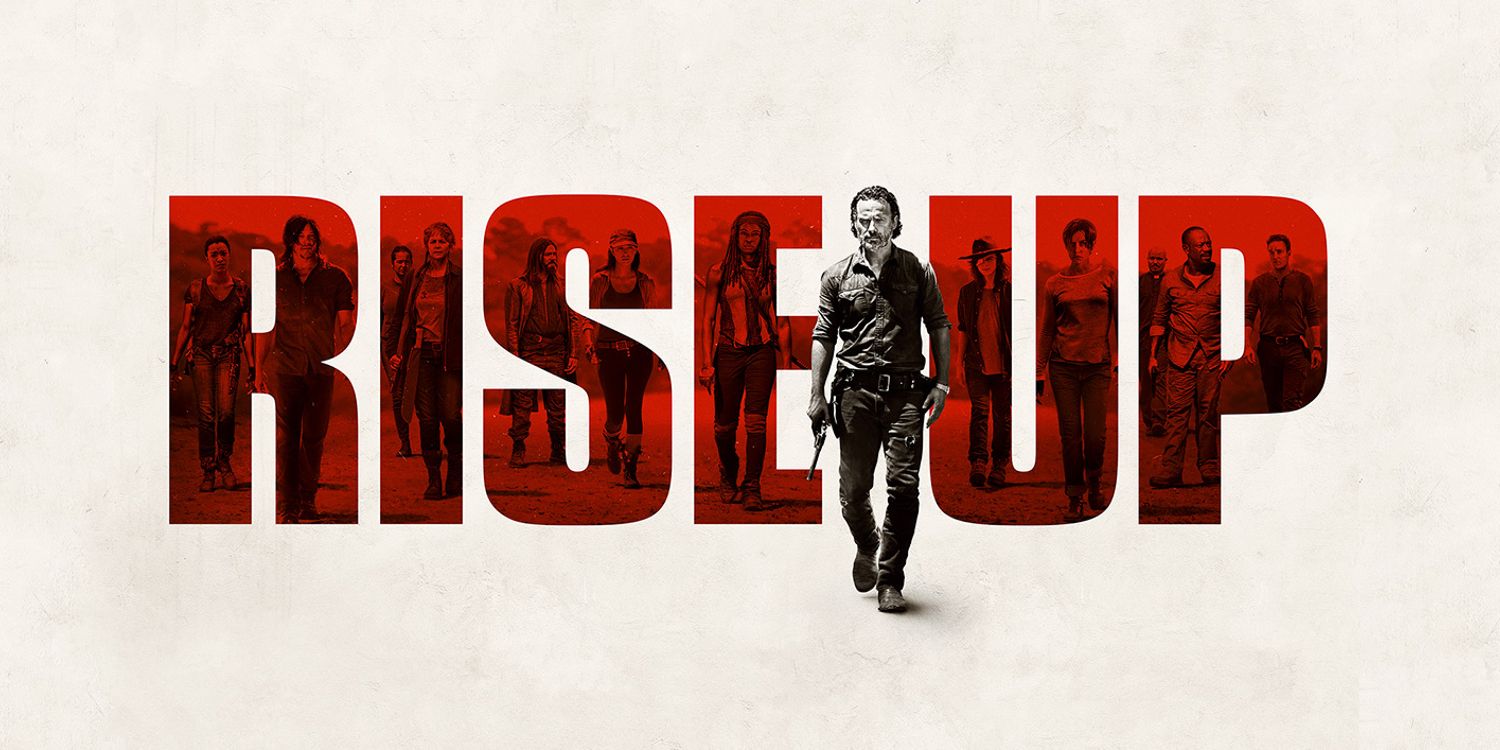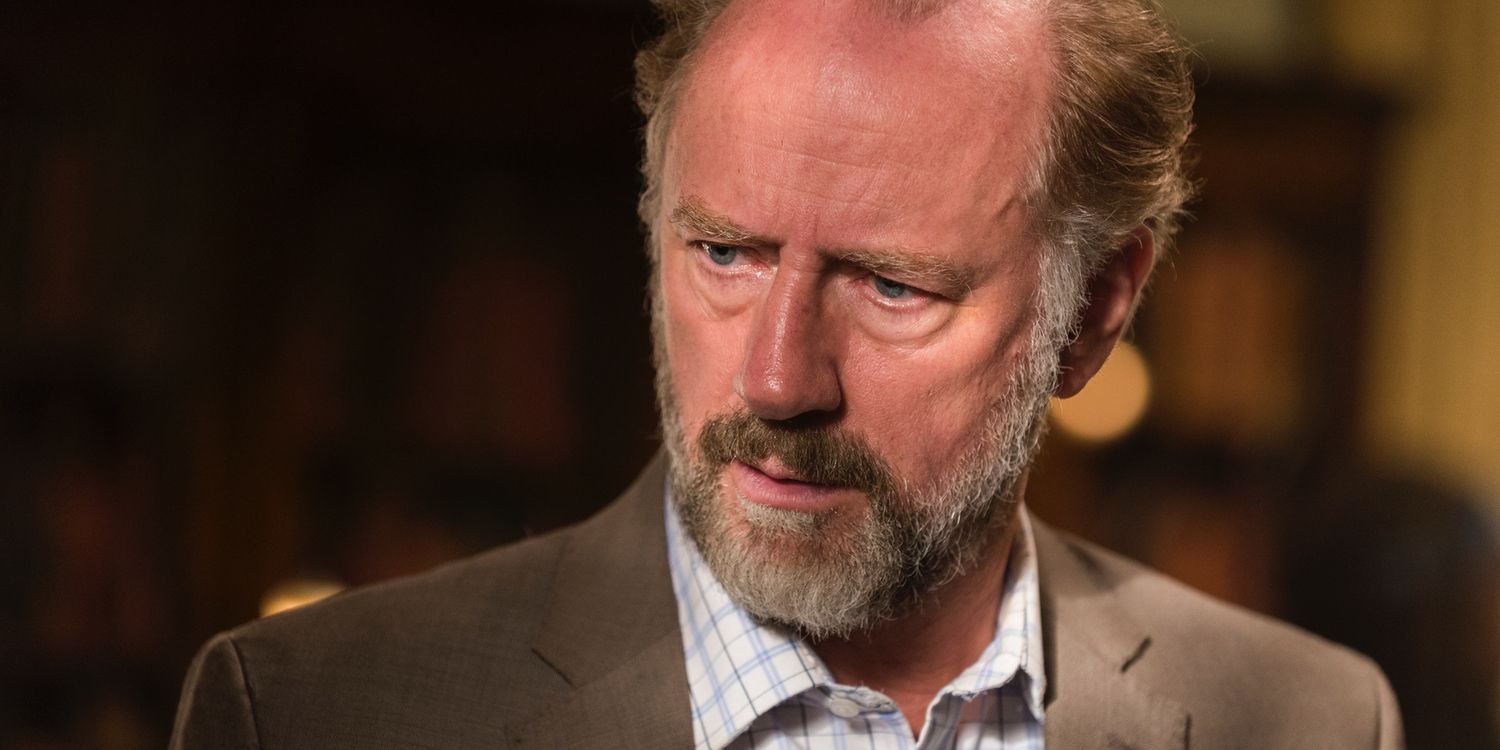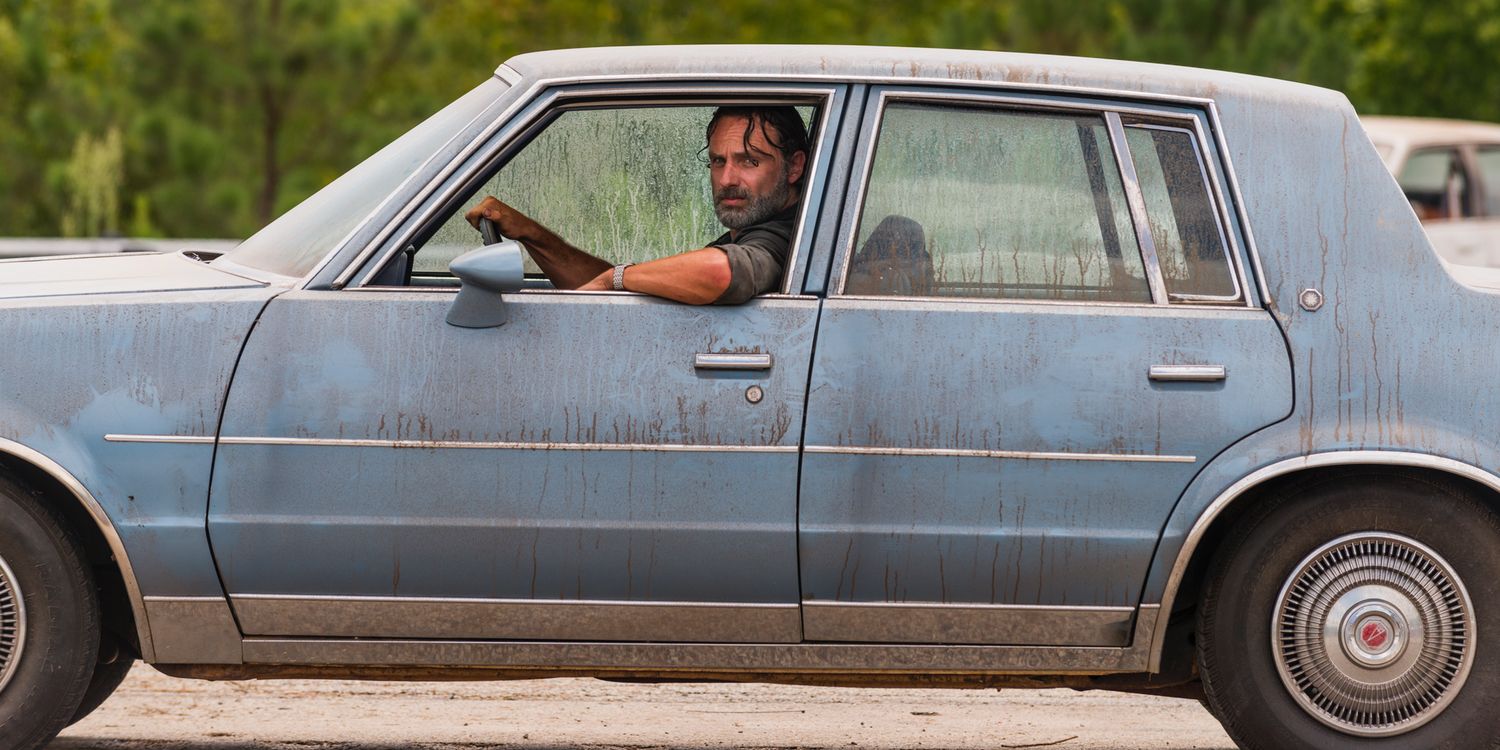The Walking Dead took a lot of flak during the first half of season 7 for both its brutality and unwillingness to alter its tone. Such complaints are nothing new for the show. Since its inception, the series has taken a mostly solemn stance in terms of its storytelling, which makes sense, considering that approach has led to ratings gold. Those ratings began to slip noticeably during the eight weeks the show aired in late 2016. The series is still a goldmine for AMC, and even with its dinged viewership the show posts the sort of numbers that any other television show would crawl across broken glass to have. Nevertheless, a change was in order; one that allowed for characterizations to breathe a little – especially under the oppressive weight of Negan and his Saviors, and Jeffrey Dean Morgan's oxygen-sucking performance.
Showrunner Scott M. Gimple took to answering the call for a wider tonal variance during the series' long winter hiatus. It was a familiar song and dance, as either he or producer and director Greg Nicotero have taken to delivering snippets and sound bites that promise the show will be totally different when it returns. Gimple even went so far as to guarantee that Rick, the once-stoical leader of Alexandria who had been brought low by Negan in the season 7 premiere would find reason to crack a smile when the second half of the season began.
True to his word, Gimple (and credited writer Angela Kang) delivered. Rick does indeed crack a smile at the end of 'Rock in the Road', when a very apocalyptic-looking group of strangers besiege him and the rest of his crew as they search for a missing Gabriel and their similarly vanished food stores. The reaction is both unexpected and part and parcel to the world The Walking Dead has constructed these past six-and-a-half seasons. Staring down the barrels of many, many guns in far better condition than the people wielding them, Rick sees an opportunity instead of a threat.
The moment is interesting for reasons that go beyond the bland narrative potential of a desperate group stumbling upon a cache of weapons with which they can potentially shoot the bad people. Far more noteworthy is the idea that the show has flipped the script on its contentious use of the cliffhanger. Throughout season 6, The Walking Dead made frequent use of cliffhangers that, rather than leave the audience on the edge of their seats, more often left them vexed. While that's one way to energize a viewership and ensure your show maintains its position as a talking point during the week ahead, the downside is realizing all those eyeballs watching are simultaneously rolling into the backs of heads when potential (but not really) death is teased in the closing moments of any given episode.
'Rock in the Road' plays with the formula in an obvious way that works because it so deliberately addresses the sameness of the show's structure and its overreliance on violent cliffhangers. The structural disruption brings with it the allure of change, something The Walking Dead has hinted at for what feels like years, teasing "A New and Bigger World" with the likes of Alexandria, Hilltop, The Kingdom and The Sanctuary, but too often settled for neighborhood squabbles and the occasional doomed road trip. It also gets points for allowing Rick to put some unused facial muscles to work, capping off a largely flavorless episode with an unexpected reaction that hints of greater plot potential moving forward.
The promise of more guns and, presumably, willing cannon fodder for the war Rick has already surreptitiously begun to wage against Negan is a Walking Dead-style bright spot in an episode that works hard to bring some levity to its characters' present circumstances. The episode wisely kicks off with Xander Berkeley, who may be the best and most underutilized performer on the series right now, doing his best to reject Rick's proposal of collectively fighting against the Saviors. Berkeley's Gregory makes for a interesting contrast to both Negan (though he doesn't physically appear in the episode) and Khary Payton's King Ezekiel. He is somehow far greasier than the '50s-styled villain and even more theatrical than the tiger-taming king. But his theatrics and slipperiness have more to do with self-preservation and the avoidance of responsibility than anything else. Gregory is that awful manager that everyone has had at one point or another.
To start at Hilltop is necessary to the premiere more reasons than it's where the midseason finale ended. Gregory is the start of a trend, hinting that Rick's losing ways are going to continue for the time being. But although Ezekiel ultimately turns down Rick's proposal too, the meeting isn't entirely fruitless, though it's more beneficial for the viewers than it is the characters. Rick's learned the power of humility and the necessity of cooperation after the first half of season 7, which makes for a surprisingly different exchange between the two leaders that demonstrates Rick can attempt an emotional appeal to others that doesn't rely entirely on the same rhetoric he's used in the past. The character's use of a parable is surprising but fitting for his audience in The Kingdom and it demonstrates Rick and read the room, not just yell at or kill everyone in it. It's a heretofore unseen and welcome gear for the show and for Rick, both of which have relied too heavily on a one-size-fits-all approach to dealing with outsiders.
The character's tendency toward stubbornness and overwhelming self-confidence has been with him from the very beginning and it perhaps reached its apex at the end of season 6, long after the season 3 Ricktatorship began. This seems like a different Rick; one who has to think and plan instead of one who merely reacts. The success of 'Rock in the Road', however, is mixed, as the attempts to illustrate a new, seemingly more thoughtful Rick also demonstrate the limitations of the show. The major set piece involves Rick and Michonne cutting down a horde of walkers with a steel cable between two speeding cars. It makes for a visually impressive moment that nonetheless results in both characters pushing their way through a group of the undead and emerging unscathed.
The problem isn't that the characters survive a familiar scenario but that the audience already knows they'll survive, negating any sense of tension that might otherwise have resulted from such a showpiece. Like the group stumbling upon the Saviors' trap and stealing their explosives, or following Gabriel's trail only to stare down a seemingly hostile new community, this new Rick still isn't creating change; he's merely reacting to the changes in circumstances around him. It's great to see the crew catch a break, but it will be even better when the series can find a way for them to prosper from events they have put into play themselves.
Next:Walking Dead Showrunner Teases ‘Big’ Dwight Episode
The Walking Dead continues next Sunday with 'New Best Friends' @9pm on AMC.
Photos: Gene Page/AMC



